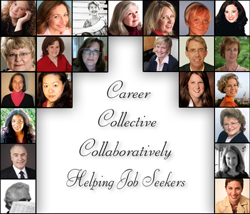This post is one of many Career Collective posts by career and resume experts on Job-hunting “Rules” to Break/ Outdated Job-Search Beliefs . I am honored to be part of this group and want to thank Miriam Salpeter, of Keppie Careers, and Jacqui Barrett-Poindexter, of Career Trend, for coordinating this initiative now on its second year. You will find links to the other expert posts at the bottom. I highly encourage you to read them all and bookmark them for future reference or sharing with friends and family. If you are on Twitter, you can see our community by following #careercollective.
This advice goes out to new job seekers as well as seasoned job seekers. It comes from those who have been in job search and have learned through the school of hard knocks. These are the top 25 habits to break, or not fall into, if you want to land a job quickly:
- Only apply for jobs online
- Send the same generic cover letter to every job you apply to
- Use the same resume for every job you apply to
- Don’t network or meet new people
- Don’t ask your friends and family for information
- Complain about being unemployed
- Bad mouth your previous employer
- Don’t target companies, apply to anything anywhere
- Ask everyone you know for a job
- Be vague, general and “able to do anything”
- Don’t take time to assess your strengths and passion
- Don’t research salaries
- Don’t follow up on anything
- Wing the interview, who needs to prepare
- Don’t do anything differently
- Stay away from LinkedIn and social media
- Keep your search geography very small, don’t apply for jobs outside this range
- Only consider the large, well known employers
- Talk a lot and chew gum during the interview, and bring a friend along
- Assume the company will let you know the status of their opening
- Don’t try and negotiate the job offer
- Wait and wait and wait for the company to call you
- Show you are desperate for the job, maybe they’ll feel sorry for you
- Don’t invest time to learn new things about your occupation
- Don’t read newspapers, trade publications or industry newsletters
It is quite easy to fall into the “wrong” routine- one that is not producing the results you want. If you find that you aren’t getting interviews or enough interviews, change something you are doing. If you find you are getting interviews but not getting job offers (remember, you won’t be offered every job you interview for) evaluate what you are saying and how you are saying it by videotaping yourself or getting feedback. Taking ownership and being pro-active in your job search rests in your capable hands!
If you just change one of these 25 things, and give it time (it generally takes 30 days to break a habit!), you can start to see different outcomes.





